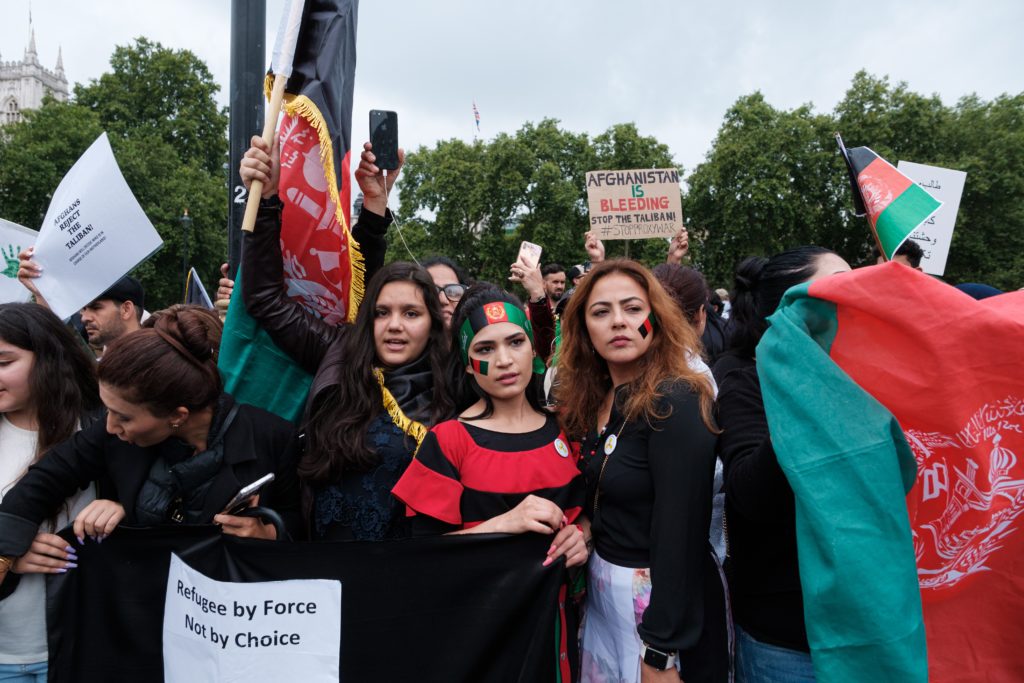Varied Reactions of Central Asian States to the Taliban – A Seminar with Dr Erica Marat
Dr Erica Marat holds the positions of Associate Professor and Department Chair of the Regional and Analytical Studies at the College of International Security Affairs, National Defence University. Dr. Marat published ‘The Politics of Police Reform: Society against the State in Post-Soviet Countries’ (Oxford University Press 2018). This academic monograph explores the conditions in which police reform is likely to succeed or fail in the post-soviet space.
Dasha Krasnodembskaya is the MECACS Seminary Reports Intern and a third year student of International Relations and French at the University of St Andrews. Her interests revolve around ethnic conflict, identity and gender.

In this enthralling seminar “Central Asian Reaction to the Taliban”, Dr Marat analysed the recent political events that took place in Afghanistan following the Taliban’s takeover in the latter half of August 2021. Prior to August there were, however, signs of the resurgent power of the Taliban. This was noticed partly in the movement of some Afghan military leaders and their families into neighbouring states such as Uzbekistan, yet no one foresaw that this change of government would take place so swiftly. Dr. Marat examined the reaction of neighbouring Central Asian states and attempted to understand the reasoning behind each state’s decision to either cooperate or disengage with the Taliban. The report below provides an overview of the main points raised.
To fully understand the reactions, it is vital to observe the overall political scene, the actors present and the movements they chose to follow. When examining the reaction to political change in Afghanistan, there is a divide between the actors in Central Asia when it comes to their willingness to accept the Taliban as a legitimate government or not. Uzbekistan, Kazakhstan and Kyrgyzstan have been more accommodating to this new political regime, which is shown by their commitment to send aid and envoys to Afghanistan. The opposite reaction has been shown by Tajikistan, as it has taken a tougher line in its dealings with the new Afghan government, in part due to concerns surrounding the situation for ethnic Tajiks in Afghanistan. Thus, what are some of the other reasons for these various responses of the different states? Can the aims driving the decision making be truly fulfilled in this turbulent era?
One important feature that is shared by all Central Asian states, as emphasised by Dr Marat, is that they are all ruled by authoritarian governments. This is necessary to highlight, as the aims and actions taken by an authoritarian government seek to prolong their power and benefit the elites rather than the wider population. For many of the Central Asian states the aims influencing their policy decision-making stem from their desire to maintain power; this power can be prolonged through political stability. Thus, for a state like Uzbekistan, cooperating with the Taliban promises less disruption to their regime. This cooperation promotes internal and external security, alongside a reduction of terrorists in Afghanistan as the Taliban appear to have the ability to contain ISIS members who joined from other Central Asian states. From a geographical perspective, the location of Afghanistan makes it a necessity for most neighbouring states to respond with readiness to work with the Taliban, as the country provides a window into economic prosperity (e.g. links with South Asian markets or ports in India and Pakistan). With no economic security, the foundations of the authoritarian regimes in states like Uzbekistan may begin to tremble. Finally, the events experienced in Afghanistan permitted neighbouring regimes to exercise their agency in international dialogue and provided the opportunity to set their own terms as regional powers. Thus, cooperation with the Taliban by central Asian states can benefit policies of their Western counterparts whilst also strengthening their own credibility. Even though Tajikistan’s government remains clear in their aim of disengagement with the Taliban, the desire to protect the authoritarian regime remains. This is, however, achieved through different means. By choosing not to support the Taliban, Tajikistan can increase its sphere of influence internationally, as shown through recent meetings with France and other Western allies. The Tajik approach also reaffirms popularity on the domestic front, which consolidates power for this authoritarian regime. Now after three decades of power, this policy towards Afghanistan follows those used previously by President Rahman in the nineties and shows that lack of cooperation may be just as an effective course of action for regime stability.
Overall, we observe the many different aims and policy objectives at play when the Central Asian states consider whether to cooperate with the Taliban or not. Since the situation is still ongoing, it is difficult to predict the success of their reactions, and if their cooperation or disengagement will truly fulfil the aims that they strive to achieve. One ongoing concern for all Central Asian states is that we do not know the full potential of the Taliban. Will it be able to remain organised within itself? Will it seek to continue to cooperate with its neighbouring states? Will it fully integrate ethnic minorities within its borders?
Dr Marat’s work reminds us that we must always be analytical and inquisitive of the facts that are presented to us in global politics. For us to truly appreciate present circumstances and to have a sense of what may arrive in the future, we must be aware of the various intricacies that overlap in international and domestic politics. The reactions of Central Asian states are not just simple reflexes, they carry the weight of certain traditions, values, aims and cultural contexts which must be analysed in full detail.